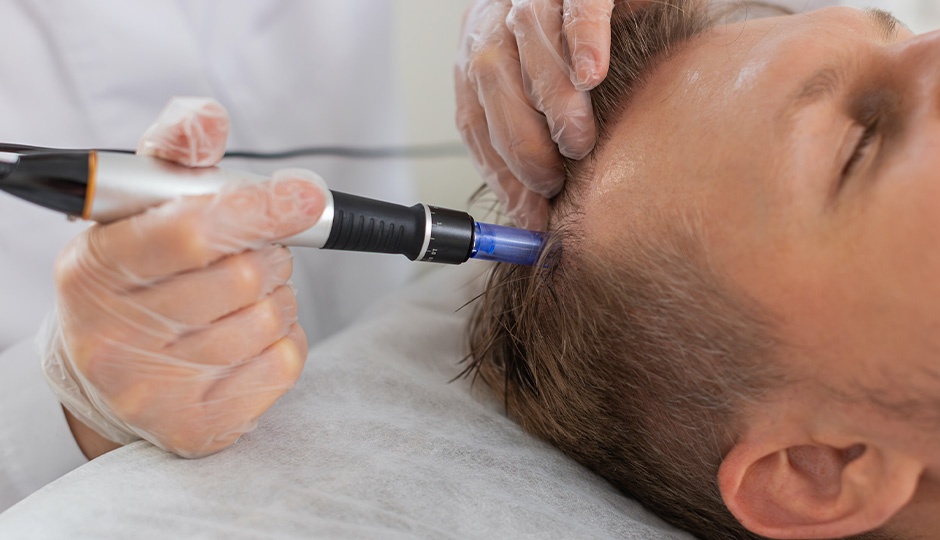Diabetes is a condition that impacts millions of people. Often, it’s due to the body’s inability to process glucose, a type of sugar, in the bloodstream. It’s dangerous and can lead to numerous health complications. Yet, diabetes has more symptoms and implications. For some people, it can lead to hair loss or hair thinning. If you are noticing that your hair is thinner than it used to be, and you have unchecked or uncontrolled diabetes, then the two may be linked. How does this happen, and what does it mean for you and your hair?
How Diabetes and Hair Loss Relate
Diabetes interrupts the hair growth cycle. This is the process in which the hair grows for a period of time, which is typically about two to 5 years, and then enters a resting phase. That phase lasts about 100 days. After this, the hair falls out. The process starts over a few months later.
Diabetes can get in the way of this process. It may cause a person to lose more hair than normal during the hair growth cycle. That includes all hair on all areas of your body. When the hair starts to grow back, it may grow at a much slower rate than it did before.
One of the reasons for this is the likelihood that a person with diabetes may also have alopecia areata. This is a condition in which the body’s immune system – which works to keep you healthy – starts to attack itself. In this case, it attacks the hair follicles or the tiny shafts where hair grows out from your scalp. When this happens, the follicles cannot grow hair. This leads to the hair falling out. Often, this happens in patches in specific areas of the head.
The Stress Factor
A secondary reason for hair loss in people with diabetes is the stress this chronic condition causes on the body. Diabetes is a disease that taxes all components of your body, often making it hard for the body to process energy properly. You may feel run down and weak with it. You may be taking medications for it and, even if it is controlled, those medications may cause damage to your body as well.
Stress limits the function of the body and taxes it so much so that it can lead to hair loss. Because a chronic disease is causing damage, it’s likely that a person will see more hair loss.
What Can Be Done About Hair Loss from Diabetes?
There may be ways to improve your hair loss and reduce the impact of future loss. To do so, start with your diet. Work to improve the nutrients you are taking in to help combat your hair loss. For example, eating a diet that’s rich in nutrients is going to help balance your immune system’s function. In addition to this, it may help bring your diabetes more under control.
It is always wise to work closely with your medical doctor to determine the best way to manage diabetes. Some may be able to do so with diet and a change in lifestyle, such as getting more exercise and living a healthier life with less stress. Others may need to use medications in addition to this to see a significant improvement in your diabetes. It can take time, too. The key is to do this for your health.
The good news is that most people will see hair start to regrow a few months after you reach a point of having your diabetes better under control. That is good news. However, the longer these conditions, especially if you have alopecia areata and there is damage to your hair follicles, the less likely it is to lead to long term improvement and health.
Right now, what you can do is this. Call your doctor and make sure your diabetes is under control. Start changing your diet to focus on a vegetable and lean protein rich diet – that is going to give your body the nutrient it needs to overcome your chronic condition. Then, start treating your hair well by skipping chemical treatments and avoiding pulling too tightly. For many people, the hair growth cycle will start back up in about 3 months, and hair may start to grow properly again. Next, if you are concerned about your hair loss, contact a hair loss professional that can go over your treatment options.
To learn more, contact the team at Unique Hair Concepts for a complimentary, private consultation.






